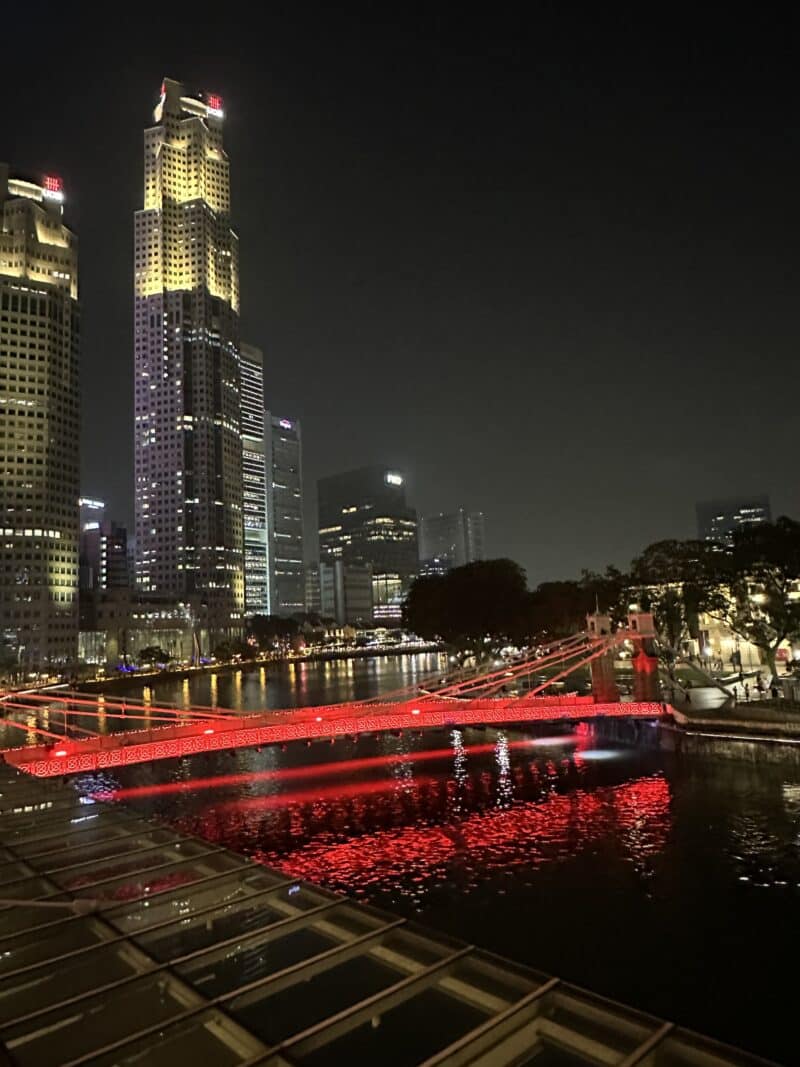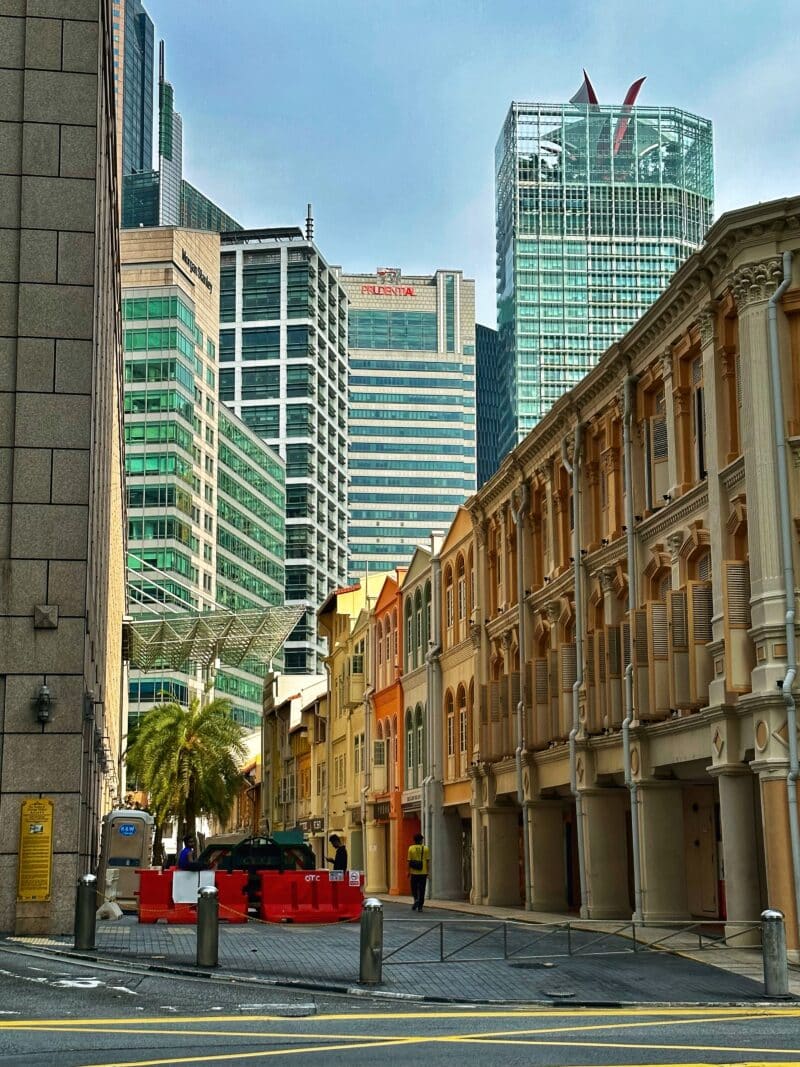“Two hundred or even fifty years ago, it would have seemed quite impossible, in America, that an individual could be granted boundless freedom simply for the satisfaction of his instincts or whims.” — Aleksandr Solzhenitsyn, “A World Split Apart” Harvard, June 1978
My wife Meg spent many years of her life teaching children to love reading, including a long time as the librarian of an elementary school where there were over 50 home languages — a remarkable “united nations” in one school, with children from literally the whole world. The funny and fascinating stories went on and on, we smiled over them in our kitchen at the day’s end. I remember one little girl from Singapore who was sure that her classmates should know that in her home city it was illegal to chew gum, “They will put you in jail, if you do!”
To the modern Western ear, that sounds draconian. They will do what? for what? In reality in the unique political experiment that is Singapore, a city that is a state, its own nation among the nations, they wrestle with the me/we dynamic just like everyone else does. Every city and society, every friendship and marriage, all of have to decide how we will order our loves, somehow honoring both the me and the we.
And yet somehow the city seems to thrive, internally and externally, with notably clean and safe streets, honestly diversified housing, at the same time becoming one of the leading financial centers of the world, everyone wanting a place at the table of the Singaporean marketplace — because things happen there that do not happen most other places. And you cannot chew gum.
 A gleaming city, a spectacular city, with an airport that is unparalleled in the West. It is almost embarrassing that we fly in and out of places that are so shabby, so worn, so outdated, so poorly designed and imagined, in comparison to the ordinary experience of the travelers in and out of Singapore. And though I did not talk with everyone, those I talked with like to live in Singapore. Given the trade-offs implicit and explicit in what the city is and wants to be, hands-down, they choose to live there, accepting its boundaries on freedom — even given its year-round equatorial heat and humidity.
A gleaming city, a spectacular city, with an airport that is unparalleled in the West. It is almost embarrassing that we fly in and out of places that are so shabby, so worn, so outdated, so poorly designed and imagined, in comparison to the ordinary experience of the travelers in and out of Singapore. And though I did not talk with everyone, those I talked with like to live in Singapore. Given the trade-offs implicit and explicit in what the city is and wants to be, hands-down, they choose to live there, accepting its boundaries on freedom — even given its year-round equatorial heat and humidity.
Teaching a graduate course on The Seamless Life, having more conversations than I can count, with a few weeks to reflect on, I was surprised how I thought about Aleksandr Solzhenitsyn’s now famous commencement address at Harvard University in June 1978. After his long imprisonment in the Gulag Archipelago, the Siberian prison system of the USSR through the 1940s into the 1970s, he was released to international acclaim in the West, a Nobel Prize winning novelist whose work awakened the world to the horrors of systemic evil in the Soviet Union.
And as it would, Harvard invited the famous man to speak to their graduates.
He surprised them, and the world, as his address — far-ranging and intellectually-rich, perceptive and probing — criticized the West, specially calling into question our unquestioned commitment to autonomy, creating a world that allows us to do what we want to do when we want to do it, as if that is the summun bonum of the good life.
He not only stepped on proverbial toes, but very eloquently and incisively offered a punch-in-the-gut to Harvard and to the watching Western world. There was much sophisticated huffing-and-puffing in response, sure that Solzhenitsyn’s years of labor camp had skewed his understanding of life and the world, that he had “forgotten” his audience and setting, i.e. this was “Harvard” after all, the academic symbol of the West and its glories.
In the years since Solzhenitsyn’s speech, I have drawn on his words twice in formal papers, one a thesis and one a dissertation, sure then — as I am now — that he had eyes to see into the heart of who we are, of who we have been and who we will be. It is not that he was omniscient, or altogether right in his observations about us — or maybe even especially that he was correct in his reading of Russia — but he was definitely a prophet without honor in the Harvard Yard. We had no interest in hearing anyone say anything that called us, and what we primarily prize, into question. After all, we are homo adorans at our core as human beings, as we will worship someone or something, making it most important, giving it unquestioned authority. We are that, always and everywhere, we are that.
40 years ago we were sure that he should have stayed in the Soviet Union, writing novels about “them” and their problems. To enter into our life and times was too much, beyond what he was asked to do, beyond what we wanted him to do — though it was profoundly what he needed to do, what history demanded that he do. That we had no ears to hear is our problem, not his.
One morning Meg and I read his speech aloud, looking out of our hotel window onto the larger city of Singapore, wanting to take into our hearts the incisive critique of Solzhenitsyn as we listened to and learned from this place and its people. What do his words mean now? A generation later? The world very different, and the West only more so a society committed to the absolute of autonomy, with ideology-become-idolatry on both the political left and right that are literally killing us. What does a city and state like Singapore mean in the world today? Why is it what it is? Do human beings more fully flourish in the individualism of the autonomous West? or does the collectivism of Singapore offer social and cultural conditions that more fully account for human flourishing? Where are we more human? and why?
The best questions have no cheap answers — but they do want answers. Coming back into the West, after most of 24 hours flying from Singapore through San Francisco to Washington, I cannot put these questions away. They keep reverberating, running their way through my days and nights, into my reflections and conversations about who we are, about why we are, about what kind of life we want to live.





